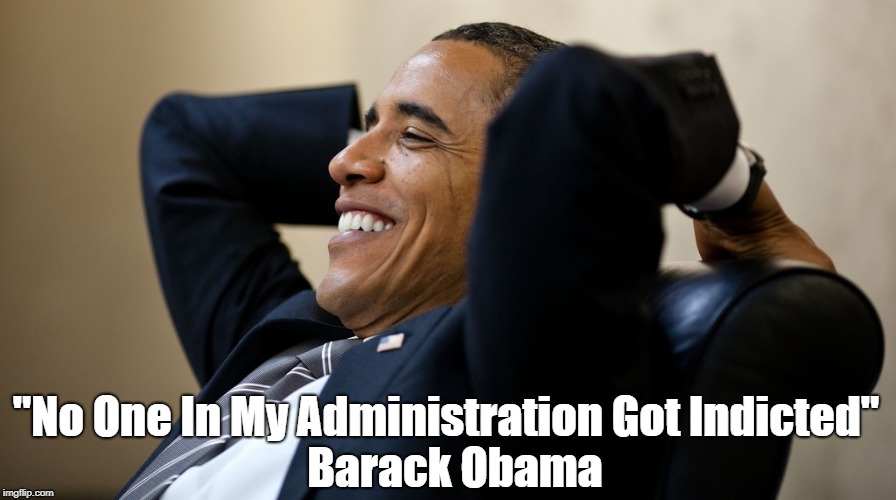
| Trolls And The End Of Civilization As We Knew It
In 2020 Obama Identified "An Epistemological Crisis" As America's Central Toxin. Here's How I Identified This Toxin In 2012 (This Post Has Been Updated)
Obama has identified our biggest problem of all
 By Frank Bruni Opinion Columnist, New York Times By Frank Bruni Opinion Columnist, New York Times |
|
|
What exquisite timing Barack Obama has. |
Just as American voters told Trump to cede the stage, Obama strode back onto it with the publication of his new memoir, “A Promised Land.” |
And just as Trump reaches the apotheosis of his egomania, Obama, in the book and in interviews about it, shows that a man can ascend to and inhabit the White House without losing all capacity for self-doubt, all inclination toward introspection, all appreciation of ambivalence, all respect for nuance. |
It must drive Trump crazy. Given his contemptuous treatment of Obama over time, I chalk that up to justice. |
But I mention Obama today not to hit him with the big fat love bomb that four years of Trump have made many of us feel. I mention him to throw a spotlight on comments of his in an interview with Jeffrey Goldberg, the editor in chief of The Atlantic, that was published on Monday. |
Talking about something that he thought about extensively in the course of his writing, Obama told Goldberg: “I come out of this book very worried about the degree to which we do not have a common baseline of fact and a common story.” |
He was referring to all the different, idiosyncratic streams of information that people drink from and how divergent their perceptions of events thus become. Those streams have multiplied wildly over the past decade, and perceptions have diverged accordingly — and perilously. |
Goldberg asked Obama: “Is this new malevolent information architecture bending the moral arc away from justice?” |
“I think it is the single biggest threat to our democracy,” Obama answered. “I think Donald Trump is a creature of this, but he did not create it. He may be an accelerant of it, but it preceded him and will outlast him. I am deeply troubled by how we address it.” |
At another point of the interview, Obama said that “if we do not have the capacity to distinguish what’s true from what’s false, then by definition the marketplace of ideas doesn’t work. And by definition our democracy doesn’t work. We are entering into an epistemological crisis.” |
Epistemological crisis is sort of hard to wrap your arms around, but not single biggest threat. That’s a sweeping statement. I think it’s an accurate one, too. |
Most Americans sense the threat, but to work in the media is to feel it more immediately, more acutely, more fearfully. It’s to notice that a liberal news outlet’s description of a public figure or event can bear absolutely no similarity to that of a conservative news outlet. It’s to open your inbox and encounter assertions from readers that have zero grounding in any evidence you’ve seen but that cite piles of evidence found elsewhere — often specious evidence, though it’s neither presented nor processed that way. |
It’s to understand, from both the affirmations and the condemnations that come your way, that each of us increasingly lives in an echo chamber. Our own convictions bounce back to us louder and louder all the time. And, eventually, they render us deaf. |
This danger — at least the magnitude of it — is peculiar to our current moment. While people have long segregated themselves into communities of the like-minded and edited out voices and viewpoints that they preferred not to consider, they didn’t have the hyper-efficient tools to do so that the digital age has given them. They couldn’t customize such an individualized diet of news and information. They couldn’t construct the illusion of reading widely — and being deeply informed — while splashing all the while in one very shallow and tightly proscribed pool. |
That’s the dark gift of the internet, and so many of our political problems are fed by it. So many of our social ills are exacerbated by it. The “truth decay” that Obama and others like to mention? That’s a function of “self-investigation” and choosing your own news, which the chaotic (and polluted) modern media ecosystem makes possible. That’s the fruit of hundreds of cable television stations, thousands of podcasts, millions of websites and billions of social media accounts. |
What to do? That’s the other aspect of Obama’s comments that gripped me. He said he was “deeply troubled by how we address it,” which means he doesn’t have a ready answer. No one does. |
But recognizing the problem and talking about it consistently and extensively are a start, because this is a crisis of consciousness (and conscientiousness), and it’s tackled by each of us becoming more aware of his or her behavior, resolving to change it, seeding a similar enlightenment in others and then cultivating it through constructive conversation. |
It’s a crisis of education, and while that has implications for classrooms, it also has implications for boardrooms and living rooms, because we teach and learn in all sorts of settings. |
If we’re to have a healthy democracy, which depends on ample common ground, we must find our way back to a common set of facts. |
Right now, we’re lost. The Death Of Epistemology: Update
N.B. Residing illegally in the United States is not a felony. It's a misdemeanor.
|
|
|
No comments:
Post a Comment